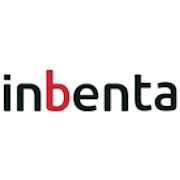Looking for a comprehensive buyer's guide for help desk software? Look no further! Our guide covers everything you need to know to make an informed decision. Discover top features, benefits, and pricing to find the best help desk software for your business.
Ensuring streamlined and proficient customer support is essential for any corporation. Streamlining help desk processes not only helps organizations resolve customer issues faster but also improves customer satisfaction and loyalty. That's why the right software can be a game-changer for companies of all sizes. With numerous solution options available in the market, selecting the best one for your business can be a challenging task. In this comprehensive help desk software buyer's guide, we'll walk you through all the essential advanced features and considerations you need to keep in mind while selecting the perfect one to fit your business needs.
What is help desk software?
It is a powerful tool that simplifies and streamlines the process of managing customer queries, support requests, and technical issues. It enables organizations to provide timely and effective support services to their clients, boost productivity, and enhance overall customer satisfaction. Improving the “customer journey” has proven to increase revenue up to 15% while also boosting customer satisfaction by around 20%. Knowing this, it’s easy to see the importance of support desk software for your customers and staff.
The common use cases of this application include:
- Managing customer queries and support requests: A help desk platform enables businesses to track incoming requests, route them to the appropriate internal teams or agents, and respond to them in a timely and efficient manner.
- Streamlining ticket management: With help desk software, organizations can easily prioritize, categorize, and assign tickets to specific teams or agents based on their skills and workload.
- Enhancing collaboration: It enables different teams or customer service agents to collaborate and work together to resolve complex issues and improve overall productivity.
- Automating processes: The solution automates several processes such as ticket routing, notifications, and escalations, enabling organizations to save time and focus on more critical tasks.
- Tracking performance: It also enables businesses to track key performance metrics such as response time, resolution time, and customer satisfaction, helping them identify areas for improvement and enhance overall service quality.
A help desk program is commonly used across different industries and organizations of all sizes, including:
- E-commerce companies: It can help e-commerce companies manage customer queries related to products, deliveries, and refunds, among others.
- IT companies: It can help IT companies manage technical common issues related to software, hardware, and network infrastructure, among others.
- Healthcare providers: The technology can help healthcare providers manage patient queries related to appointments, prescriptions, and medical records, among others.
- Educational institutions: It also can helps educational institutions manage student queries related to admissions, registrations, and academic support, among others.
A help desk system is a powerful tool that enables organizations to provide timely and efficient services to their clients, boost productivity, and enhance overall customer satisfaction. With several use cases and applications, it is a must-have for any modern business looking to provide excellent customer service.
Benefits of a help desk program
This program has become an essential tool for companies of all sizes. It aids them in managing customer support and enhances communication with their customers. Not only does the software streamline customer service, but it also offers several other benefits.
Here are some of its main benefits:
1. Faster response times:
It is designed to make managing customer requests more efficient. It can help manage emails, support tickets, and other inquiries, which results in reducing response times.
2. Centralized system:
Instead of having different people in different departments managing support requests, it provides a centralized portal. This reduces the workload on individual departments and helps create a better customer experience.
3. Improved customer satisfaction:
With such a tool, companies can provide 24/7 support to their customers. This allows businesses to address queries or concerns immediately, including keeping customers happy.
4. Better data management:
It helps companies gain insights into customer problems and experiences. This data can help businesses identify trends and make strategic decisions, resulting in better products and services.
5. Increased productivity:
It also reduces the time and effort required to manage customer support tasks. This, in turn, increases the productivity of the support team, which translates to better results for the company.
6. Cost-effective:
By implementing help desk system, companies can save on operational costs and reduce overheads. Using a single system to manage customer support can reduce the need for hiring additional staff. Research by Forrester Research and Oracle analyzed business costs with multiple customer service channels and concluded that by switching to a web-based help desk, you can reduce costs by as much as $9.50 per interaction.
Help desk software is becoming increasingly important for businesses and by adopting it, organizations can generate insights regarding customer problems and experiences, making strategic decisions that lead to cost savings, and subsequently increased profitability.
10 key features of help desk software
Companies are expected to offer exceptional support services to their clients. One of the ways they can achieve this is by adopting a robust help desk software. It helps organizations provide customer service through multiple channels such as email, social media, phone calls, live chats, and more.
Here are 10 of it common features:
1. Ticket management:
This module lets you collect, organize, and manage all customer queries in one central location. This feature ensures that no issue goes unattended to, and customer inquiries are promptly handled.
2. Automation rules:
This feature helps you automate repetitive tasks in your support system, freeing up time for your team to focus on more complex queries.
3. Reporting and analytics:
Help desk software comes with dashboards and reporting tools that provide insights into your support system's performance.
4. Multichannel support:
Using multiple channels to engage with customers can be overwhelming, but help desk software provides users with a unified platform to manage all customer communication channels.
5. Service-level agreement (SLA) management:
This feature helps organizations set various customer support goals, such as response time and faster resolution time, and track their performance against those goals.
6. Knowledge base:
The technology comes with self-service tools where customers can find answers to frequently asked common questions or learn how to use your products or services.
7. Integrations:
Help desk software integrates with existing business apps, allowing for a seamless experience across multiple systems.
8. Collaboration tools:
This feature enables customer support teams to work together and share information more effectively, helping to resolve issues more quickly.
9. Customer communication:
This module ensures consistent communication with customers, providing clear and concise responses to their queries.
10. Ticket prioritization:
It lets businesses prioritize tickets based on urgency, ensuring that important queries are attended to on time.
Adopting a help desk software solution is an excellent way to streamline your support process, improve customer satisfaction, and optimize your team's productivity. With the above features, you can choose a one that meets your unique business processes and needs to set your organization on the path to success.
Considerations of help desk software
Purchasing help desk software is a big decision. It’s essential to choose the right one to ensure your business runs smoothly with excellent customer service. Here are the key factors you should consider when purchasing it:
- Features: This program's features are vital in ensuring it meets your business needs. Before purchasing, ensure it has all the functions you need, such as email integration, ticket management, and self-service options.
- Ease of use: It should be easy to use and navigate for both your support team and customers. A user-friendly interface will help your team respond to customer inquiries more efficiently.
- Scalability: A solution should be flexible and able to grow with your business. Ensure the software can handle the number of customer inquiries your company receives and can scale up.
- Integration: The program should integrate with other business tools to ensure seamless communication and data sharing. This could include integrations with CRMs, eCommerce platforms, or social media networks.
- Reporting and analytics: Measuring the performance of your support team is essential. Ensure the software has reporting and analytics features such as ticket volume, customer satisfaction ratings, and response times to help you improve your service.
- Security: Your customer's trust is fundamental, and ensuring their data is secure should be a top priority. Look for a tool that offers data encryption and secure login protocols.
- Cost: The price of the software is an essential factor, and you should consider the long-term costs of licensing, support, and upgrades. Look for one that offers a reasonable pricing model that fits your budget.
When purchasing a help desk system, take your time to research and compare different options. Consider your business needs, budget, and goals, and choose one that will provide the best value for money. By considering all these factors, you can be sure to choose the right one.
Market trends for a help desk platform
When it comes to help desk software, staying up-to-date on the latest trends is crucial for any modern business. This year and beyond, several key trends promise to shape the industry and transform the way teams provide support.
Trend #1
One of the biggest trends is the rise of cloud-based help desk software solutions. As more companies move their operations to the cloud, they are demanding a tool that can keep up with their needs.
Trend #2
Another major trend is the use of artificial intelligence (AI) and machine learning (ML) to automate routine tasks and improve customer satisfaction. This technology can help identify the root causes of issues, suggest solutions, and even provide self-service options to users.
Trend #3
Finally, there is a growing focus on integrating this technology into broader IT workflows. As businesses become more reliant on technology, they need help desk solutions that can work seamlessly with other tools and systems. Overall, these trends point to an exciting future for this innovation and the businesses that use it.
Conclusion
In a nutshell, help desk software is indispensable for organizations seeking to optimize customer support and elevate the overall customer experience. Throughout this guide, we've explored the myriad benefits and features of this imperative application, including task automation, knowledge base empowerment, and advanced analytics. We've highlighted its positive impact on organizational efficiency, productivity, and customer satisfaction. This solution is more than just technology—it is a strategic asset that empowers organizations to deliver exceptional support and drive sustainable growth.








